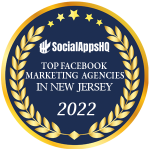9 Questions to Ask When Designing a Digital Marketing Strategy
1. Who Are We Trying to Target?
This is the most fundamental question of all marketing strategies. Your message won’t resonate with anyone if it’s not aimed at the right people. Conduct research into the market to identify the target customer for your marketing campaign.
Do you want to reach more people or generate more sales from existing customers? Are you looking to reposition yourself as an option for people who may have never considered you before? Once you understand who you’re talking to, you can design a more relevant message.
2. What Is Our End Goal?
It’s also important to define your end goal: a common objective that guides everyone on the team throughout the campaign. Your strategy’s end goal should be measurable and specific. You also want to give the campaign a start and end date for reaching this goal.
While the ultimate goal of marketing is to increase sales, it doesn’t necessarily have to be the focus of your campaign. Other goals can include acquiring a certain number of new email subscribers, higher social media engagement, or more positive reviews on your business profile.
3. What Is Our Budget?
4. What Methods Will We Use?
Content Marketing
Content marketing involves the creation and publishing of content for your target audience that can range from blog posts on your website to an educational infographic that you include in a client newsletter. Because the nature of content marketing is adding informational value rather than directly advertising your brand, it typically has longer-term effects. An effective content marketing strategy now could create loyal customers for years to come.
Search Engine Marketing
If you want your products and searches to be the first thing that customers see when they make a Google search, you’ll likely want to invest in search engine marketing. SEM is a paid digital marketing strategy that will make your website rank higher on search results. It’s also referred to as pay-per-click (PPC) marketing. SEM drives customers to your site fast, and you may see results within hours.
Social Media Marketing
5. What Platforms Will Reach Our Audience?
Strengthen the effect of your message by sharing it with an audience that’s already looking for it. By this, we mean use social media platforms that resonate with your target audience. Popular social media apps for businesses include Instagram, Facebook, Twitter, LinkedIn, and TikTok. Each app has properties that may make it suitable for your business model and target clients.
For instance, Instagram’s features make it a great starting point for product-based companies. With its grid layout, the app’s appeal is due primarily to the visual experience for the user. Meanwhile, LinkedIn is a classic choice for businesses looking to connect with other businesses and establish a presence in the local community. TikTok’s short-form video content may be appreciated by business owners looking to creatively connect with others.
6. How Will We Track Our Progress?
You’ll never reach your marketing goal if you can’t measure it. It’s important to have tools that allow you to keep track of what you’ve accomplished. Marketing solutions agencies often offer comprehensive packages that allow both you and the team to monitor where your campaign is and adjust it as necessary.
7. Should We Use SEO?
On-Page SEO
On-page SEO involves the elements in your website, including its content, visual appeal, and back-end code. A website with a poor user experience will signal to search engines that it’s not worth appearing to users at the top of a Google search. The same goes for slow page loading times or flaws in the site’s technical aspects. It’s a good idea to have an expert work on your website and make the changes necessary for optimal performance.
Off-Page SEO
8. What Can We Automate?
9. How Can Customers Connect With Us?
Transform your online presence through LBMS’s custom solutions, including monthly reports, weekly campaign optimization, and robust results tracking. You’ll know where your leads find you and how you can reach who you want. Contact Local Business Marketing Solutions team to learn more about what we do.




